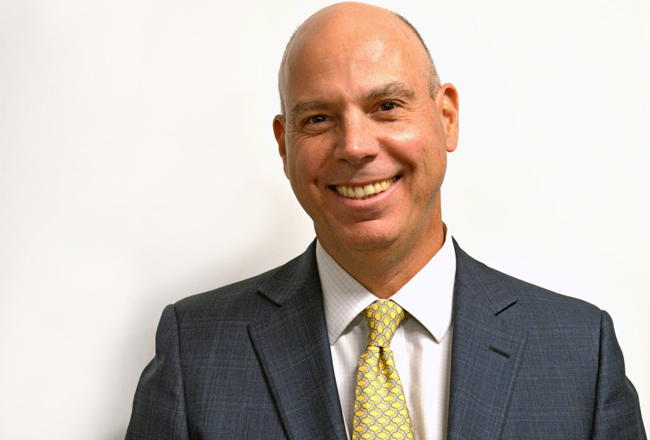
Health care advocacy, a healthy real estate economy, expanded housing opportunities, increased workforce development, biotechnology innovation, infrastructure improvements and improved internet service were a few of the items in Michael N. Romita”™s sights as he became president and CEO of the Westchester County Association (WCA) on March 1.
“My family has had a very long relationship with the business community here in Westchester,” he told the Business Journal. “We ran a vibrant family business here for decades. We have been a part of the cultural firmament, sitting on numerous boards of colleges, universities, nonprofits and hospitals. This is really a continuation of that work. It”™s an opportunity for me to serve not only the business community, but also the broader community at large.”
Romita, a resident of Harrison, assumes the role formerly filled by William P. Mooney Jr., who recently retired after 15 years on the job.
Romita”™s grandfather was an Italian immigrant who came to the U.S. as a teenager with no money and no education. What he lacked in those areas he more than made up for in energy and perseverance, starting a company that distributed coal and grew to handle oil and natural gas and services for commercial and residential buildings.
The business, Castle Oil Corporation, owned the Port Morris terminal, the largest deep-water petroleum products terminal in New York City. In 2014, Castle Oil Corporation”™s assets were purchased by Sprague Resources LP for more than $56 million.
Romita formerly was executive vice president of Castle Oil. His resume includes serving as a partner in the Washington, D.C.-based federal government affairs and public policy consulting firm Mercury Strategies LLC, whose clients include AT&T, T-Mobile, the National Association of Theater Owners and Verizon Communications.
Romita received a bachelor”™s degree from Tufts University, a law degree from the University of Michigan Law School and Master of Laws degree from The London School of Economics. Romita has been active with local charitable and civic organizations, including the Westchester County Parks, Recreation and Conservation Board and MINT, a mental health foundation.
“If you look at the economic drivers that create a powerful and strong and vibrant business community, you talk about housing issues, you talk about tax issues, you talk about real estate issues, you talk about jobs and linking employment opportunities with business,” Romita said. “If you solve those factors you improve the economy not only for business but also for workers and residents.”
Romita said he expects to continue WCA”™s push to encourage the build-out of ultra-high-speed internet service in the county.
“There are pockets of the economy in Westchester and elsewhere where people simply don”™t have access to ultra-high-speed internet and that puts them at a competitive disadvantage not only for business but also for educational purposes,” he said. “We have focused on that and I see us continuing to focus on that but maybe taking a refreshed view of how we approach that.”
He said the WCA needs to partner with the county government on the issue since promoting gigabit internet is part of its initiatives for economic development.
Another issue the county and WCA have in their sights is the future of the Westchester County Airport.
“Having an airport is very important to the local economy,” Romita said. “I understand there are stresses that the airport can place on the surrounding community. The Westchester County Association has been agnostic as to whether or not the airport becomes privatized. We think that it”™s not absolutely necessary that it be run by a private organization and even if it is that the county government and the county Legislature should still maintain a direct control over how the airport is run and how it is used in the future.”
Romita said transportation and the condition of roads and bridges are important to the WCA.
“Our proximity to New York is incredibly important, so having not only an airport that functions well but also the rail system and within the county itself the bus system, all of these transportation issues really improve the economy and well-position Westchester to be a leader,” Romita told the Business Journal.
While this is an election year and the WCA will continue its efforts to sway politicians, Romita doesn”™t expect to become involved in partisan politics.
“We try not to play in the political mud. We don”™t see how that”™s necessarily constructive. However, maintaining very good relationships with local politicians and state politicians helps get our message out and helps us achieve the goals that we really need to achieve,” he said. “The most important thing is to maintain a good reputation. We”™re not always going to come out on the same side as some of the politicians in some of the positions that we have to take but we”™ll always be respectful.”
Romita said an important goal for him will be to expand WCA”™s membership and provide more opportunities for members to engage with the association and have more impact on the decisions made by the organization. He also expects to spend a considerable amount of time on advocacy work in Albany, at the County Office Building and with various municipalities.
“Advocacy means not just being for or against a particular piece of legislation,” Romita said. “It means taking a collaborative approach, reaching out to multiple stakeholders and really trying to find the best solutions that can help the entire community and not just one organization or one pocket of interest.”






















